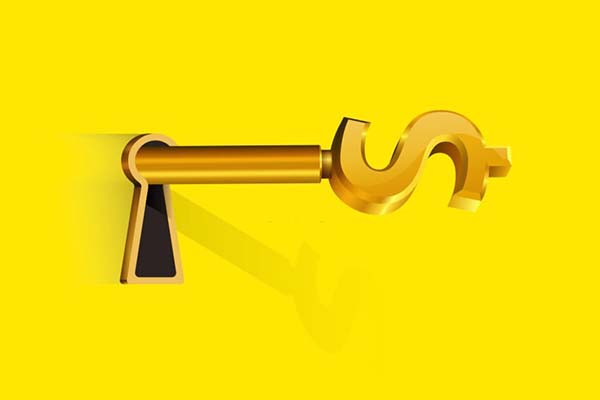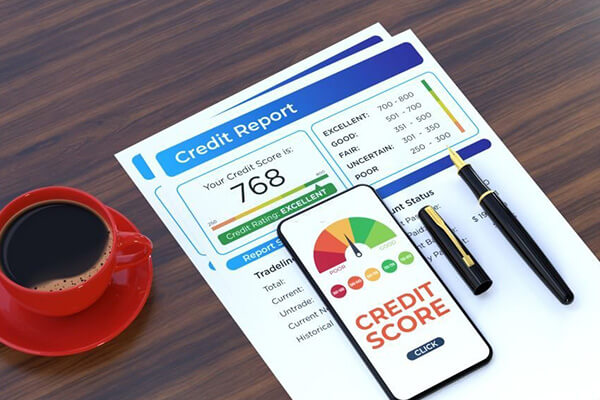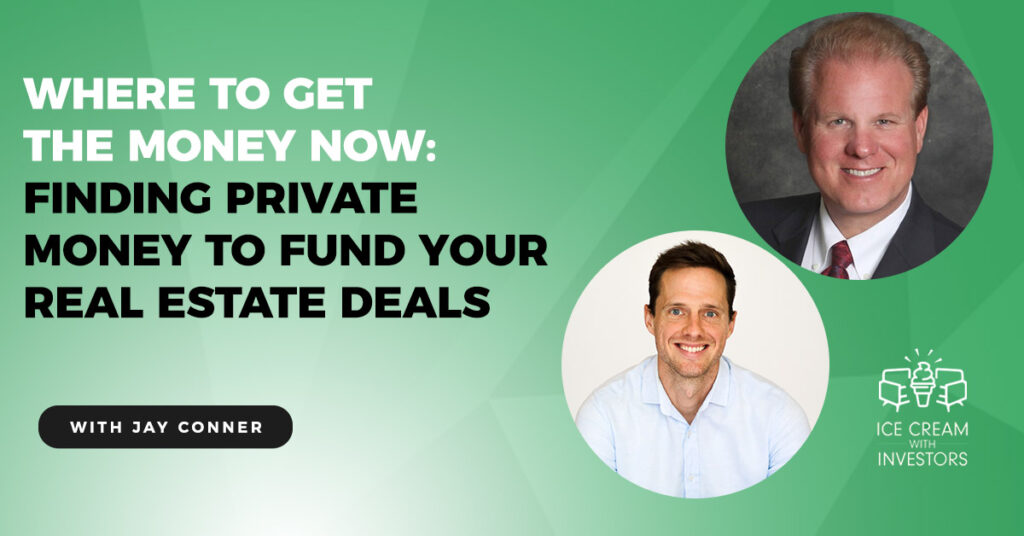If you’re investing actively in real estate, you should be thinking about how to get access to private money. Funding your deals with money from your own line of credit is great, but what if your bank suddenly decides they can’t give you that anymore? This was what happened with Jay Conner sometime in his journey as a real estate investor. Since then, Jay has been preoccupied with finding creative ways to get money from private individuals. Now, most of his deals are funded with private money, and he’s also a private lender himself. He is also the President of the Private Money Authority, where shares his secrets and strategies to recruiting and raising private money. In this episode, he breaks down what private money really means, how it differs from hard money, and the three main ways you can get private money to fund your deals. Tune in and learn how to get funded now!
—
Watch the episode here
Listen to the podcast here
Where To Get The Money Now: Finding Private Money To Fund Your Real Estate Deals With Jay Conner
Jay, welcome to the show.
Matt, I am so excited to be here. Thank you so much for inviting me along to talk about my favorite subject on the planet. That is private money and private lending.
Before we get there, we like to start with the difficult questions here. What’s your favorite ice cream?
There are so many flavors to choose from. It’s got to be strawberry. I love strawberry ice cream. I don’t want it mixed up with any of that vanilla and chocolate stuff. I want an unadulterated strawberry.
Are you a toppings guy?
It depends if my ice cream is in a cup or a bowl. I’m not putting any toppings on my cone because that’s going to get all messy. I’m a toppings guy if my ice cream’s in an ice cream bowl.
If you get a bowl, what’s your go-to topping?
I love hot fudge. I love nuts, but I don’t eat nuts on my ice cream. That’s nuts and ice cream. They don’t go together. I’m not a sprinkles guy. I don’t need any sprinkles. I like lots of cherries. What are they called? Maraschino cherries? It’s cherries and fudge, and I’m good to go. I love that so good. I can rub that in my hair.
Tell our readers what the scoop is. What do you do?
My wife, Carol Joy, and I live in this small town in Eastern North Carolina called Morehead City, North Carolina, with a population of 8,000 people. Our total market has only got 40,000 people. I’m doing 2 to 3 houses a month with an average profit of $74,000 in this little teeny tiny market. If you run those numbers, $74,000 per deal, 2 or 3 a month, those numbers work. They work when you can automate your business and work in the business ten hours or less a week like I do. Those are the number of deals that we’re doing. I’ve never wholesale a deal in my life. I know how to wholesale a deal, but I’m in such a small area. I’ve got nobody to wholesale it to.
I stay in all the deals. Plus, I like $74,000 better than $7,400 or $12,000 assignment fee. I’m rehabbing most of the houses. Most of my deals are funded with private money because, in the real world, most sellers require all the cash. I’m not talking hard money. I’m talking private money, getting money from human beings, from individuals. I do creative financing as well. I’ve bought a ton of houses over the years. I’ve been doing this since 2003 full-time. I bought a lot of houses on terms and bought subject-to existing notes. I buy them with seller financing, that type of thing. Matt, my statistics show after reviewing thousands of property lead sheets and informational properties from sellers, only 13% of all those for sale by owners will sell to me creatively.
What are the other 87% require? All the money. Some people say, “Jay, I don’t need any private money. I just want to be in the pretty house business. I don’t want to be in the renovations and all that.” That’s fine if you want to miss out on 87% of the deals. Everything in the mobile listing service, auctions, bank on the property, short sales, and all that stuff is going to require cash, but 87% of the for sale by owners require all the cash. Private money is the key. That’s what my business is looking like these days.

Private Money: 87% of the for-sale-by-owners require cash. So private money is the key.
I can’t wait to get into the private money strategies that you have. Before we get there, take us back to 2003. Where did your real estate journey begin?
I was raised in the mobile home business. You, being a Tennessee boy yourself, I know you know what a mobile home house trailer is.
I’ve seen 1 or 2.
Tennessee, North Carolina, South Carolina, Alabama, Georgia, Florida, and Texas are the capital areas of mobile homes. I was raised in that business. I was brought up being around helping people own homes with affordable housing. In 2003, pretty much all the consumer financing for that product went away. I was with this company. We woke up one morning and had a $22 million wholesale product and no way to finance it. It’s a whole lot more fun starting a company than shutting down a company. While we were shutting down that company, I started in real estate in single-family houses. In my first year, I only did three deals.
Back then, in 2003, if you could fog a mirror, I mean you were living and breathing, you could go to the local bank and get unsecured lines of credit if you had a visa credit score. That’s what I did. I went to the local bank in 2003. They gave me a $250,000 unsecured line of credit. Here I am with $250,000, burning a hole in my pocket, wanting to buy something. That’s how I started out. I’ll tell you what, Matt. Times changed. Have mercy. I remember it like it was yesterday. In the first six years, I was using the local bank. I didn’t wake up one morning and say, “I’ll raise some private money.” Doesn’t all the growth and quantum leaks in your business take place when you got a problem going on, and you got to figure it out?
Here in North Carolina, we still have landlines. I picked up my phone. In January 2009, I had two deals under contract to buy two houses and called up my banker. I learned very quickly in that conversation that I had been shut down. My lines of credit were gone. I asked my banker and said, “Why are you shutting down my line of credit?” He says, “We’re just not loaning money out to real estate investors.” I didn’t know there was a global financial crisis going on, but when he told me that, now I got my own crisis going on. It’s these deals under the contract. I knew I had to learn a better and quicker way to fund my deals.
I called up my buddy Jeff in Greensboro, North Carolina. He was a real estate investor at the time. I told Jeff what had happened. He said, “Welcome to the club.” I said, “What club?” He said, “The club of losing your line credited at the bank.” I said, “What are we going to do?” He mentioned private money for the first time. I had never heard of private money up until then. I had never heard of self-directed IRAs. That’s so important to learn about that because I got 44 private lenders now funding my deals. I got about $8.5 million in private money that we moved from project to project. Over half of them are using retirement funds to fund our deals.
That’s how it started. I was up against the wall. I didn’t have a way to fund it, but I had a mantra that came to my mind from that phone call. I was on the phone with my banker. The mantra was, “Jay, it’s impossible for you to fail unless you choose to quit.” Quitting was not an option. My business exploded, Matt. In fact, I raised $2,150,000 in less than 90 days of losing my line of credit at the bank. Back then, foreclosures were rampant, but the banks wouldn’t loan money, so you had to have the cash to do the deals even though there were so many foreclosures. With this private money, I was able to pick and choose the deals I wanted.
It’s impossible for you to fail unless you choose to quit.CLICK TO TWEET
Mine and Carol Joy, my wife, our business tripled. In our first twelve months, we netted over $1 million in profit in a down market because we had access to the funding. Having access to funding is the most important thing, even more important than the interest rate you pay. I love private money. You make the rules. The lender doesn’t make the rules. You teach them about private money. I’ve never asked anybody for money. People say, “Jay, how do you have all that private money? You never ask anybody for money.” I put on my teacher hat and teach them about private money. I’ve never pitched a deal since I started using private money in 2009.
If I bring a deal to a new private lender and teach them the private lending program, I’m already sounding desperate. The money comes first. Teach them the private money lending program and how they can earn high rates of return safely and securely. They tell you how much they got. Maybe they need to be introduced to a self-directed IRA company to move retirement funds if they’re going to use some of the retirement funds.
You then bring a deal back and tell them you got good news, “Where’s the house located? What’s the after-repair value? What’s the funding required?” Tell them they need to wire their funds next Thursday because that’s when closing is. I don’t ask them if they want to do the deal. They want to do the deal. They’ve told me how much money they’ve got, and they’re waiting for the phone call because they’re not making any money as long as the money is sitting in their account.
I want to take us back to the line of credit and getting shut down. We were joking before the show here that, over the past several years, money has been very easy to secure. People have gotten a little bit sloppy without figuring out how they’re going to get additional sources of funding because they could always go to the bank and get more money. As we enter the back half of 2022 and go into 2023, it would not be surprising to me if a lot of these lines of credit get shut down, and liquidity starts to be sucked out of the system. Let’s start this conversation with this. For our readers that have never heard the term private money before, what is private money? How does it differ from hard money?
You said it right there, Matt. In other words, private money does not equal hard money. I’ve got great friends that are hard money lenders and brokers. If you don’t have access to private money, having access to a relationship with a hard money lender is better than nothing. There’s so much difference between hard money and private money. Most of the time, a hard money lender is a broker of money. They’ve gone out and raised money from individuals like I do. I circumvent the hard money lender broker and go straight to the source. The hard lender broker goes on and raises money, and the private lenders that they raise money from, the private lenders invest money in the hard money lender’s fund.
The hard money lender then loans that money out to you, the real estate investor, and they are making money on money. What are the big differences? There are a lot of differences, but here are the big ones. First of all, interest rate. What interest rate do you pay a hard money lender versus a private lender? Now the national average that individuals are getting is 8%. What I pay my private lenders is 8%. The national average on hard money now is around 14%. Some are 10%, 12%, 14%, 15,% and more. Some are 18%. The average is 14%. 1) You’ve got a big difference in the interest rate. 2) It’s origination fees, also known as points.
An origination fee or point is a percentage of the loan amount you’ve got to bring to the closing table. Your average hard money lender is charging four points now. Some are 2, 5, and 6, but the average is 4. If you’re borrowing $100,000, 4% or 4 points, that’s $4,000 of additional closing costs you’ve got to bring to the closing table. With a private lender, there are never any points. There are never any origination fees. I’m never paid origination fees to my private lenders. I’m still at 8% on hard money. We’re already up to 18%. The third big difference is what’s called extension fees. Most hard money loans and notes are either 6 or 9 months.
If you have been making your payments on time, they may extend your note, but if they extend your note, what do they want? More money. There are extension fees. The national average is about 2% to extend. I know one hard money lender that if you haven’t cashed out in 12 months, they’re going to charge you a 3% additional every 90 days. That gets expensive fast. There are no extension fees in the world of private money.
The private lenders don’t even want the money back because they know if they get it back, they will stop making money until you go to another deal. Another big difference is how much money the lender is going to advance you or give you when you buy a property. With a hard money lender, they’re only going to give you 65% to 80% of the purchase price, no matter how good the deal is. Who’s got to come up with the rest of the money? You do as the borrower.
With all this private money, all my private money deals are no money-down deals to me because I never bring any of my own money to the closing table. The private lender funds 100% of the purchase. If there are renovations involved, they fund 100% of that when you buy. In addition to that, because we’re buying at discounted prices, I’m also able to bring home when I buy. Who wants to get paid to buy properties? I’m able to bring them a big check every time I buy, and I can pull some equity out of it simultaneously. It puts you in control. Your credit scores got nothing to do with how much private money you can get. That’s because it is what’s called a collateralized note.
I’m not borrowing unsecured money. I’m borrowing secured money. I give the private lenders the same protection that a bank would get, but your hard money lender is going to pull your credit. Private lenders don’t check out your credit. There’s no verification of income because it’s a collateral note. In the world of private money, there’s no hurry to pay it back. As with hard money, there are going to be much shorter-term notes. In fact, I’ve sold a lot of homes on rent-to-own or lease purchases that were funded by private money. I’m able to positively cashflow those deals. Here’s another big one. There’s no limit to the number of private lenders you can have or use with the amount of private money you can have.

Private Money: Your credit score has nothing to do with how much private money you can get. Private lenders don’t check out your credit. There’s no verification of income because it’s a collateral note.
Your hard money lender, I promise you, is going to have a limit as to the amount of money you can borrow and how many deals you can be doing simultaneously. In the world of private money, you can do as many deals as you want. If that’s not good enough, closing quickly with private money, I close deals within seven days of going under contract. When my private lender uses a self-directed IRA and funds my deals, I get my deals funded in three days. A hard money lender can’t move that fast. For most of them, you’re pretty much looking at three weeks, best case, in order to close. It puts you in control of the business when you’re using private money.
A couple of things that you said there that I want to make sure I highlight is origination points. You’re right. I have seen 4 to 6 points origination now as the credit market’s starting to tighten up higher interest rates and getting your credit pooled. People don’t realize that when you get your credit pooled, a number of different times, it’s going to harm your credit score.
If you have something personal you want to do, whether it be buying a car, a house, or any other thing like that, all of a sudden, you’re paying more on that money as well. Every flipper, wholesaler, or anybody that’s involved actively in real estate is always trying to work themselves to private money. You’re out there teaching folks how they can find and identify private money investors. Could you talk us through some of the different ways that you have been successful in finding private money lenders in the past?
There are three primary categories of private lenders. Where are these people? The first category is what we call your warm market. I’ll unpack each of these categories here in a second. The second category is what I call your expanded warm market. The third category is what I call existing private lenders, individuals that are already loaning money out either from their investment capital and/or their retirement funds. How do you find those people? Let’s go back to your warm market. Who is your warm market? I can tell you a lot more people than you think you know. Everybody on your cell phone is a potential private lender. They just don’t know it yet.
Everybody in your cell phone is a potential private lender. They just don’t know it yet.CLICK TO TWEET
It’s everybody on your cell phone and people on your email list. Where else do you have contacts? How about all about social media? How about your Facebook friends? I don’t mean your fake Facebook friends. I mean people that you know. I know you look at your Facebook and go, “Who in the world is that? They’re a friend. How and where did that happen?” It’s real people that you’re connected with. There are more social media, like Instagram, LinkedIn, TikTok, Snapchat, and whatever all that stuff is. It’s anybody that you’re connected with. What groups are you a member of? Where do you go to church? All those fellow church members. If you don’t go to church, maybe you should start going to church.
There’s the rotary club and civic groups. Who do you play poker with on Thursday night? I don’t know. Who’s your next-door neighbor? Anybody and everybody you know is a potential private lender. I teach my students to do it like I do. You got all those people. How do you narrow that down? Who do you put at the top of your list? I can tell you. What should be at the top of your list are retired people. With a retired person, there’s a chance. They got retirement funds. They may not be getting high rates of return safely and securely, so you can teach them about private money. That’s your own connections.
In addition to that, there’s what’s called your expanded more market. What’s an expanding more market? I teach my students all the time how to grow their network. It’s an old cliché. The value of your network is directly correlated to your net worth. How to network? How to grow your network? Get involved in your community. If you’re not in a civic group, get into the civic group. How about the chamber of commerce? I tell you where I have raised a lot of private money from people I didn’t know prior to joining, and that’s BNI, which stands for Business Networking International. I go there as a real estate investor.
There is nobody else in BNI in that local chapter that’s a real estate investor. Why do I want to go there as a real estate investor? It’s so I can teach my fellow BNI members what private money and private lending are. Either they want to do business with me, or they can refer their friends that are not having high rates of returns safely and securely. Expand your own connections. The third category I said is existing private lenders. How do you find those people? Don’t do it the way I started. When I started raising private money, I hired my real estate attorneys paralegal to search public records here in my local county, looking for individuals on public record that were loaning money out and securing their notes by deeds of trust or a mortgage as it is in most cases or most states.
In 90 days, she found 2 people. I said, “There’s got to be a better and quicker way.” Here’s a better and quicker way. Matt, I don’t know if there’s a self-directed IRA company that you recommend, but now would be a good time to say whoever that is. I certainly have one. Self-directed IRA companies have networking events. Don’t you wish you had bought some Zoom stock right after COVID started? They have networking events on Zoom that are virtual, and they have in-person networking events. Did you know that 70% of people that have a self-directed IRA account want to loan money to you?
That’s what they want to do. They want to loan their money to real estate investors. They want to be involved in real estate, but they want to be passive. They want to sit back and do nothing and collect checks. Not a bad plan. That’s why I’m a private lender, too, using my retirement funds. They have networking events. In fact, I am speaking at a national convention at a self-directed IRA company. They’re expecting over 1,000 people at that event. Can you imagine going to an event where over 700 people are walking around wanting to loan you money? You network with those people and establish relationships. Those are the main categories where you can find them.
For my students, I got a pretty nifty deal. Years ago, I hired some very sophisticated software developers. We put together my own private lender data feed. We then update every month and get every private lender loan that’s closed in the past 30 days across the nation. You can go into my data feed, put in your ZIP code, and search for all the private lenders and notes around your area and anywhere in the nation. That’s pretty nifty as well. It’s a quick way to get access and contact information for existing private lenders.
That’s a pretty cool tool. All of that is public information, but sourcing that public information is a little tough. One of the things you mentioned was self-directed IRAs. We’ve had people on the show in the past talk about how you can use your retirement funds to invest outside of publicly traded securities and bonds. Some people direct those toward real estate. There are a couple out there, like Quest and Rocket Dollar, but I would love to hear yours. You said you have a recommendation. Who do you recommend for that if somebody is reading and wants to be able to do that?
You just said it, Quest. I have done business with more than one self-directed IRA company where I would refer my new private lenders that have retirement funds to my connections at Quest. The actual name of the company is QuestTrust.com. They’re phenomenal. I had all my private lenders move their funds from others that will go unnamed, another self-directed IRA company whose customer service got so bad. I had them move all over to Quest.
My private lenders that have their retirement accounts at Quest, I get my deals funded in three days. It’s phenomenal customer service. Quest Trust is having its first annual convention that will have come and gone. Hopefully, they’ll be all up and running and doing that annual event. You want to go to the Quest Trust annual convention. Throughout the year, they have Zoom virtual networking events. You can go to their website and look to see when their upcoming virtual networking events are. You can go right there on Zoom and network with people who want to loan you money. How about that?
You’ve mentioned that you raise private money for your deals but also are a private fund investor as well. Why? Talk to us about some of the benefits and why you are also a private money investor as well.
I don’t use my own liquid capital for lending out. I just use my retirement funds. The reason I do is because I don’t like being in the stock market with my retirement funds because the stock market is so volatile. You invest in the stock market either with your investment capital or retirement funds. What you invest in, like mutual funds, stocks, or whatever, you already lose money. You’ve got to pay fees and commissions. The value is worth less tomorrow than it is now. In this world of private money, the principal loan amount remains the same on the deal.
I know exactly what the return is going to be, and it’s so safe. I don’t loan money out to other real estate investors unless it’s collateralized by the mortgage or deed of trust. I typically don’t loan more, and I don’t borrow more than 75% of the after-repair value. I didn’t say 75% of the purchase price, but 75% of the after-repair value. When it comes to my own retirement funds, I know what kind of rate of return I’m going to get. It’s reliable. I know what the future holds, and there’s no question mark as to what my retirement fund is going to be worth.
I’m glad you mentioned that because when you look at people that are out there evangelizing ETFs in the stock market, they say, “Average is 7% return,” what they don’t take into account is where you are in that sequence of returns on when you’re going to get your 7%. For example, in 2021, we saw the stock market go up 21%. This 2022, it’s down 25%. Essentially, we’re at the same level or below where we were at this point a few years ago. You haven’t made any money. To your point, you’ve paid commissions, fees, and things like that. In my opinion, it’s always better to get a consistent return other than a volatile return if you can or at least have a portion of your portfolio that way.
In this private money, that’s what it does. You know exactly what the return is going to be. It doesn’t go up or down. It’s like putting your cruise on 60 miles an hour, and you know how fast you’re going to get there.

Private Money: With private money, you know exactly what the return is going to be. It doesn’t go up, it doesn’t go down. It’s just like putting your cruise on 60 miles an hour and you know how fast you’re going to get there.
Jay, this is a fantastic conversation. Hopefully, this is opening some eyes to folks out there that are tied up through bank mortgages or lines of credit to start thinking about how they access private money. I want to switch us now into the last round. We’re calling this The Five Toppings. Our first one is, what is your favorite book or a book you’ve read that’s given you a paradigm shift?
My favorite book that had the biggest impact on me, particularly when I was 24 years old, is called University of Success. It’s still in print. The author is Og Mandino. He has all these different contributors and authors. It’s mostly about personal development and mindset. You can have all the knowledge. You learn all about private money, but unless you got your head screwed on right and the confidence to implement what you know, it’s not going to do any good. That book was a phenomenal transformation for me.
It’s a new one for me, so I’ll have to check it out. Our second one is, I believe that the person you become several years from now is directly correlated to the habits that you have and the things you do every day. What are some of the things that you do every day?
First of all, I get up and brush my teeth. The first thing I do is do 30 minutes of meditation. I call it self-observation. I do about fifteen minutes of induction, which is self-hypnosis, where I’m focusing on my feet, legs, thighs, chest, heart, and arms. I’m doing a countdown of 10 to 0 and 5 to 0 in each area. That takes about five minutes. By the time I’m in it for fifteen minutes, I’m in that beta, but I am in either alpha or theta brain wave. It’s in that state that you can change the programming of your subconscious mind. In the last 10 to 15 minutes, I’ll be focusing on anything that I want to improve. I’ll be focusing on the goals that I have coming up.
It’s that 30 minutes of meditation, then straight to the StairMaster. I love StairMaster. I know that sounds painful, but I don’t StairMaster for the health benefits, even though there certainly are. I StairMaster for getting the blood flowing to my brain. I’m on top of the day. I’m sharper. I’m convinced nobody can outthink me because my blood is flowing. It’s the meditation, the StairMaster, and then scheduling intentional breaks throughout your day.
If you’re an entrepreneur or self-employed, taking that 10 to 15-minute breather, getting that from your desk, and going and hanging out is just as important as all those other appointments you have on your calendar. In addition to that, I pretty much don’t believe in a to-do list. In my world, unless it gets on the calendar, it doesn’t get done. Anything that’s worthwhile and needs to be done, I get it scheduled on my calendar.
If you’re an entrepreneur, getting away from your desk to take a 10-15 minute breather is just as important as all the other appointments on your calendar.CLICK TO TWEET
I love it. You said the StairMaster. I’m laughing because I’m a runner, cyclist, and endurance athlete, but climbing up a flight of stairs is the most humbling activity for me. I always get tired of climbing upstairs. Our third one is, what’s the best piece of advice you’ve ever received?
I wish I had received it before I started this business. In my first six years in the business, I just did it by reading books. The best advice I ever received is when you’re starting something new, get a mentor or a coach, work with someone that’s already been down that road, and do not go down the road yourself. You are either going to pay for your education by making big expensive mistakes, or you’re going to work with someone that can hold your hand that’s been down the road. Books are fantastic, but working with someone and getting a local coach or mentor that’s been doing it and can answer your questions is the way to go.
Our fourth question is, what is the thing you’re most proud of in your life?
I haven’t been asked that question in a while. What I’m most proud of is I was the drum major of the Wake Forest University marching band. It’s for three years: sophomore, junior, and senior. I was about 50 pounds lighter too. There’s not much drum majoring going on nowadays. I loved the band. That was my fraternity. Going out there and having about 40,000 people cheering you on will get you excited and stoked.
What instrument did you play?
I was a trombone player. I only did that in high school and freshman year in college from sophomore through senior year. I was waving my arms as hard as I could and blowing a whistle.
My brother was in the University of Virginia Band. That is a big accomplishment to be the drum major and be the lead person out there. Our fifth one is if you could sit down and eat a bowl of ice cream with anyone, dead or alive, who would it be and why?
It would be the author of University of Success, Og Mandino. To get inside Og Mandino’s head, back in the day, he was the personal development guy, much like Dale Carnegie’s How to Win Friends & Influence People. Jim Rohn was another big one on personal development. He’s passed on. It’s any of those guys that set the benchmark on personal development. I love personal development because, after all, if you don’t have that, you can’t implement what you know.
Jay, this is a fantastic conversation. If our readers wanted to reach out to you and learn more about some of the systems you teach and all of that around private money, where is the best place we could point them?
I’m so excited about this private money guide I finished writing. Your readers can download it for free. For anybody that wants to get started in private money for their deals, a new real estate investor, or a seasoned real estate investor, this private money guide is called 7 Reasons Why Private Money Will Skyrocket Your Real Estate Business and Help You Build Incredible Wealth. You can download it for free at www.JayConner.com/MoneyGuide. Download it for free.
Jay, thanks for coming on a show.
Matt, thank you so much.
Important Links
- Jay Conner
- QuestTrust.com
- University of Success
- How to Win Friends & Influence People
- www.JayConner.com/MoneyGuide
- https://www.YouTube.com/c/RealEstateInvestingWithJayConner/videos
- https://www.Linkedin.com/in/PrivateMoneyAuthority/
About Jay Conner

Jay has been investing in real estate since 2003. After a few years of early struggles, he’s gone on to raise millions of dollars of private money and build a robust portfolio of single-family rentals and small apartment buildings.
In his new book, Where to Get the Money Now, he shares how to get private money for your deals, as well as his secrets and strategies to recruiting and raising private money.





